PRODUCTS
CONTACT US
Ningbo Nide International Co., Ltd.
一一
· Contact person:Jack Zeng
· Mob/Whatspp/WeChat:0086-13738869026
· Email:emarketing@nide-group.com;marketing4@nide-group.com
· Add:No. 169, Wohushan Road, Daqi Subdistrict, Beilun District, Ningbo, China
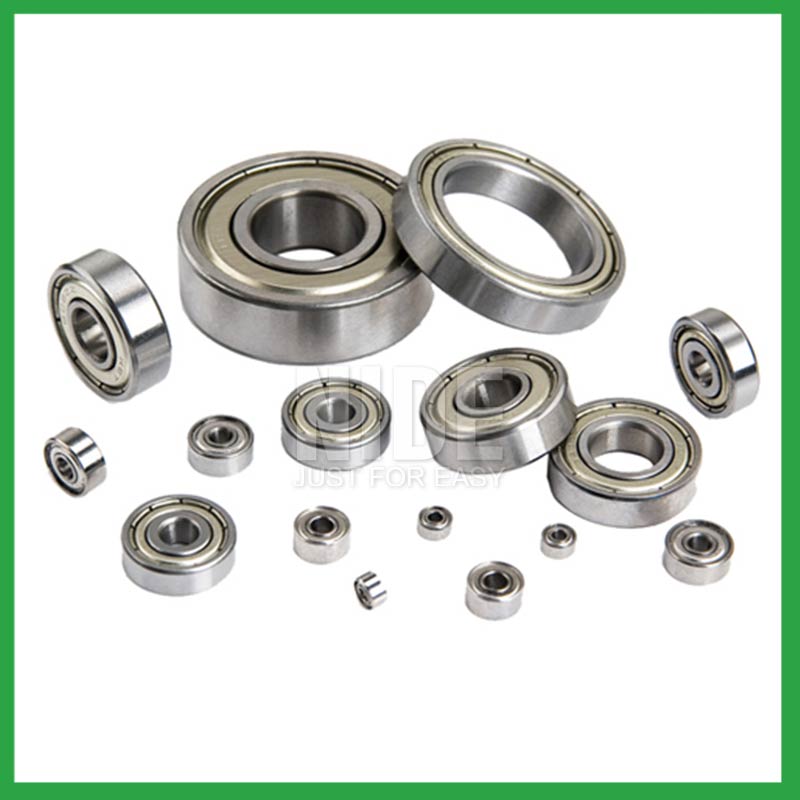
Nide team could manufacture ball bearing as per customer’s drawing and samples.
If customer only has samples, we could also design drawing fo r our customer.
We also provide customized service.
Our ball bearing is widely applied the different industrials.
Haishu Nide International Co., Ltd is a professional manufacturer engaged in bearing research and sales. The factory covers an area of over 9000 square meters and has over 100 employees. The company has modern production equipment and advanced testing instruments. We produce deep groove ball bearings, spherical roller bearings, fan,shaft,thermal protector,commutator,magnet,motor cover and lamination, etc. The bearing accuracy is P0, P6, P5, P4 levels, widely used in water pump motor,air condition motor,washing machine motor,BLDC motor,servo motor,electric bicycle motor,single and three phase induction motor,compress motor. Passed ISO9001:2015 and CE status.
We adopt first-class production equipment and a comprehensive testing system, and hire excellent technical personnel for operation and management. Our bearings are now very popular in the United States, Canada, Türkiye, Russia, Argentina Yemen,Paraguay,Martinique,El Salvador and other countries and regions.Nide wishes is to provide world wide customers with one-stop service for the motor manufacturing.
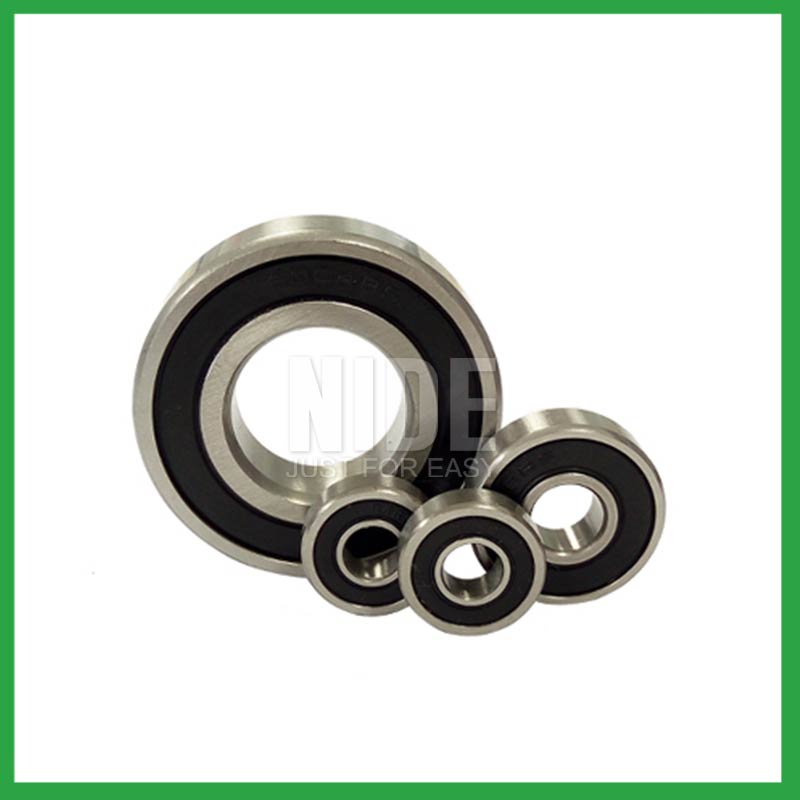
| Parameter | Information |
| Product Name | ball bearing principle |
| Place of Origin | Ningbo,China |
| Brand Name | Nide |
| Material | ceramics, etc. |
| Type | Ball |
| Warranty | 3months-1year |
| Port | Ningbo/Shanghai |
| Application | fan electric motor,machine tools, etc. |
| Size(mm) | customize |
| Color | white+customized |
| Precision Rating | as per customer's requirement |
| Certification | ISO 9001 Certification,CE-stator coil lacing machine,CE-stator coil winding machine,etc |
| Feature | Low Noise,High speed...etc |
| Packaging Details | Suitable for sea transportation |
| Service | one-stop service |
| Model Number | ball bearing |
| Supply Ability | 100000-500000 Piece/Pieces per Month |
| Lead time (days) | 15-20 (To be negotiated) |
Please note: The above table data is for reference only. For specific information, please contact us.
Bearings with ball bearings as rolling elements mainly include adjustable ball bearings,thrust ball bearings,angular contact ball bearings,self-aligning ball bearings, etc.
Before use, the model, size, and design of the ball bearing should be confirmed to ensure suitable application;
During installation, the installation load of the ball bearing should be minimized as much as possible to avoid unnecessary damage;
The bearing shaft and the bearing frame should be stable at the same time to avoid excessive tension.
Ball bearings have many advantages, making them highly competitive in the market.
Firstly, they are very durable and have good wear performance, making their service life longer than many other types of bearings.
Secondly, they are easy to install and can provide low friction performance in various applications.
Thirdly, they require a relatively low level of maintenance, making them cost-effective.
In addition, compared to many other types of bearings, their purchase cost is relatively low, making them an economical choice.
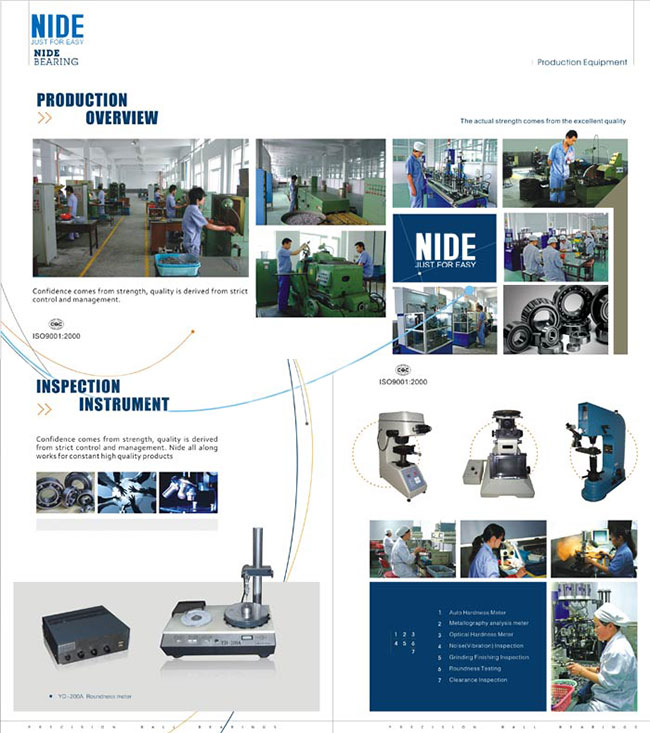
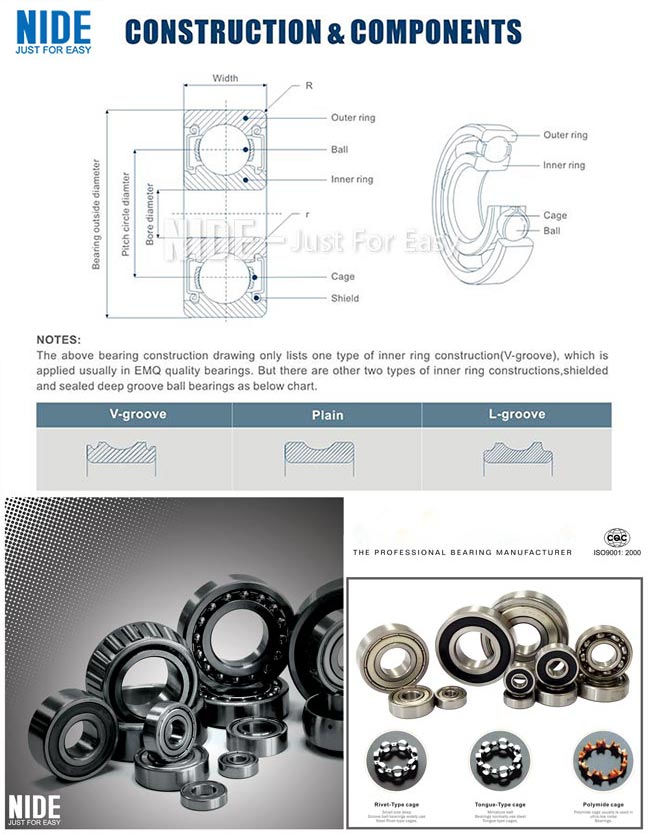
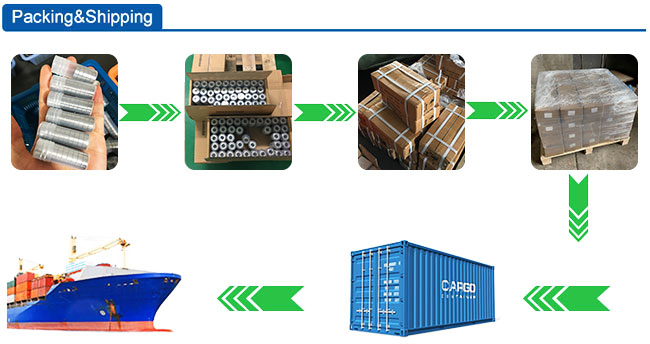
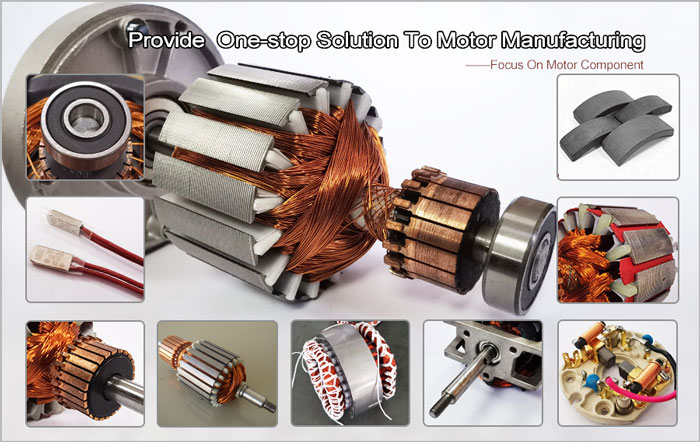
ball bearing principle---FAQs Guide
2.Are there hybrid ball bearing principle that combine steel rings with ceramic balls to optimize performance in demanding applications?
3.What are the after-sales services available for ball bearing principle?
4.What is the role of ball bearing principle in reducing friction and energy loss in rotating machinery?
5.What anti-corrosion coatings or treatments are available for ball bearing principle used in marine or outdoor applications?
6.What is the typical noise level associated with ball bearing principle, and how are noise-reduction techniques applied?
7.As a ball bearing principle manufacturer,can you supply samples?
8.Can ball bearing principle be used in vacuum or cleanroom environments, and what measures are taken to prevent outgassing or contamination?
9.How do preload adjustments in ball bearing principle affect their performance and suitability for high-precision tasks?
10.How do manufacturers ensure the quality and reliability of ball bearing principle through material selection and precision machining?
11.Are there miniature ball bearing principle designed for use in precision instruments and small-scale mechanisms?
12.Can ball bearing principle be customized with special coatings or treatments to meet specific industry standards or regulatory requirements?
13.Can ball bearing principle handle shock loads and high-impact conditions in heavy machinery?
1.As a ball bearing principle manufacturer,Your product certifications?
ISO9001:2015 certificate,ISO 9001 Certification,CE-stator,etc.
2.Are there hybrid ball bearing principle that combine steel rings with ceramic balls to optimize performance in demanding applications?
Hybrid Ceramic ball bearing principle. Ceramic ball bearings (also known as hybrid bearings) are the one component that'll easily optimize the performance of your application. Hybrid bearings have ceramic (silicon nitride, Si3N4) balls and 52100 bearing steel rings.
3.What are the after-sales services available for ball bearing principle?
If you find problems or failures in the assembly or use of the bearings , which needs to consult and other services, please feedback to Nide International in time.
4.What is the role of ball bearing principle in reducing friction and energy loss in rotating machinery?
ball bearing principle reduce friction by using smooth balls lubricated with oil or grease that freely roll between a smooth inner and outer surface. The main concept of the ball bearing is that objects that roll past each other produce less friction than if the objects were sliding against each other.
5.What anti-corrosion coatings or treatments are available for ball bearing principle used in marine or outdoor applications?
Corrosion Resistant Coatings.Whether ball bearing principle are manufactured from stainless steel or from chrome, anti-corrosion coatings can be applied. Compared to the natural state of the base metal, these coatings make surfaces less chemically reactive. In their selection of treatments or coatings, some industries choose to consult with the manufacturer of the bearings they use. This is because surface engineering is a highly specialized undertaking. These coatings used for their anti-corrosion properties to protect bearings in harsh environments include the following:Passivation (of stainless steel),Carbide and titanium nitride,Galvanized zinc,Nickel plating,Cadmium plating,TDC (thin dense chrome).
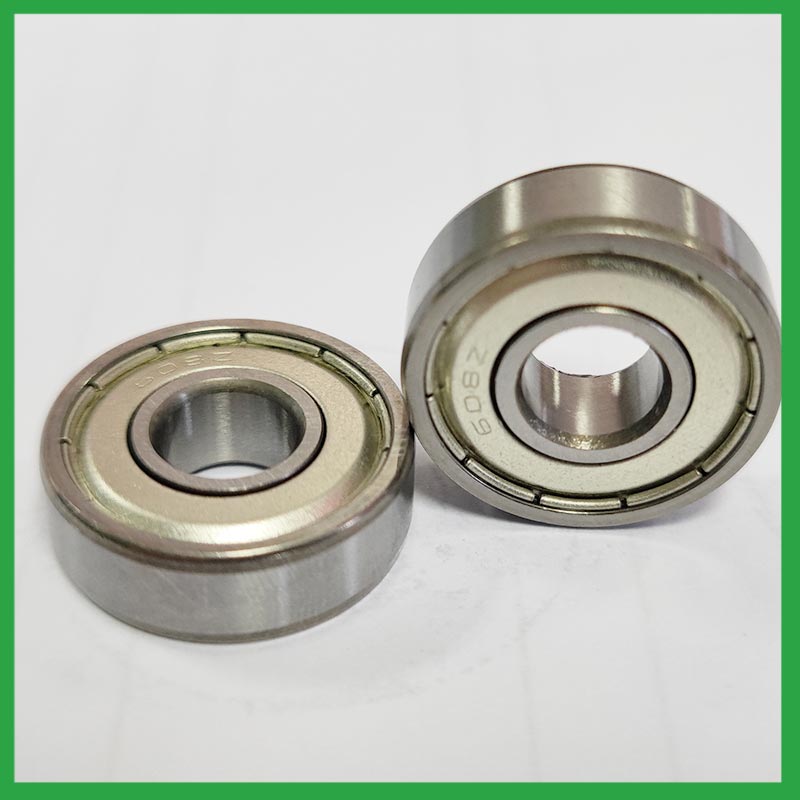
6.What is the typical noise level associated with ball bearing principle, and how are noise-reduction techniques applied?
To measure in accurate way the ball bearing principle noise under rotation during their manufacturing process is a key activity particularly in the production of medium, small and ultra-small deep groove ball bearings. This capability in bearings noise analysis has become the real distinguishing element between a standard bearings noise equipment and a superior class one.
The various types of vibration and sound in rolling bearings can be grouped in four main categories: structural, manufacturing, handling and other. The structural vibration consists mostly of race, click, squeal and cage noise: it can be continuous or intermittent depending on specific cases. The manufacturing vibration is instead related to the waviness noise generated by the geometrical imperfections of inner and outer ring and of rolling elements, being always continuous in nature. The so-called handling vibration is normally associated with flaw and contamination and is generating – in most of the cases – irregular noise. Then there are other types of vibrabition that include noise generated by sealing and lubricant (irregular) or by runout (continuous).
7.As a ball bearing principle manufacturer,can you supply samples?
Sure, samples can be provided free of charge, and the buyer pay the postage of the sample.
8.Can ball bearing principle be used in vacuum or cleanroom environments, and what measures are taken to prevent outgassing or contamination?
Bearings specify stainless steel for vacuum or cleanroom applications as stainless steels used for the rings, balls and retainer exhibit low outgassing. They usually supply open or shielded stainless steel bearings as vacuum bearings as these will outgas less than a nitrile rubber sealed bearing.
9.How do preload adjustments in ball bearing principle affect their performance and suitability for high-precision tasks?
Benefits of Preloading a Bearing
Optimizes the ball spin to roll ratio.
Increases the rigidity of an application.
Protects from excessive ball skidding.
Decreases application vibration and sliding friction.
High running accuracy (even if load conditions keep changing)
Increases bearing load capacity.
10.How do manufacturers ensure the quality and reliability of ball bearing principle through material selection and precision machining?
High-precision measuring instruments, such as micrometers and gauges, are used to check the dimensions of the rings and balls to ensure they meet tight tolerances. Surface Finish Inspection: Surface finish is assessed using profilometers to ensure the required smoothness and low friction characteristics.
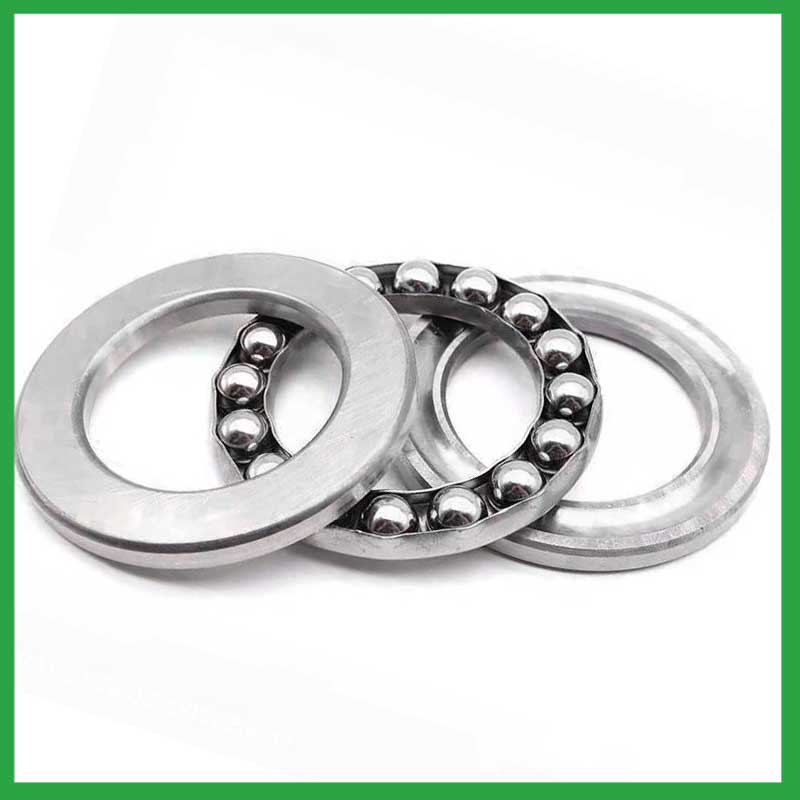
11.Are there miniature ball bearing principle designed for use in precision instruments and small-scale mechanisms?
Miniature bearings, despite their small size, play a significant role in various industries and applications. These compact powerhouses, typically measuring less than one inch in outer diameter, offer exceptional precision, durability, and reliability. Miniature bearings find extensive use in precision instruments and robotics.
12.Can ball bearing principle be customized with special coatings or treatments to meet specific industry standards or regulatory requirements?
Yes, ball bearing principle can be customized with special coatings or treatments to meet specific industry standards or regulatory requirements.
1. Corrosion-resistant coatings: These coatings are used to protect the bearings from corrosion caused by exposure to moisture, chemicals, and other corrosive substances.
2. High-temperature coatings: These coatings are used to improve the thermal stability and performance of bearings in high-temperature environments.
3. Food-grade coatings: These coatings are specially designed for applications in the food and beverage industry, where bearings come into contact with food, beverage, or pharmaceutical products.
4. Anti-static and non-conductive coatings: These coatings are used to dissipate static electricity, which can cause damage to electronic components.
5. Specialized lubrication treatments: Bearings can be treated with specialized lubricants that meet specific industry standards or regulatory requirements.
13.Can ball bearing principle handle shock loads and high-impact conditions in heavy machinery?
As a general rule, ball bearing principle are used at higher speeds and lighter loads than are roller bearings. Roller bearings perform better under shock and impact loading. Ball bearings tolerate misalignment better than roller bearings do. Roller bearings can handle heavy combined radial and thrust loads.

